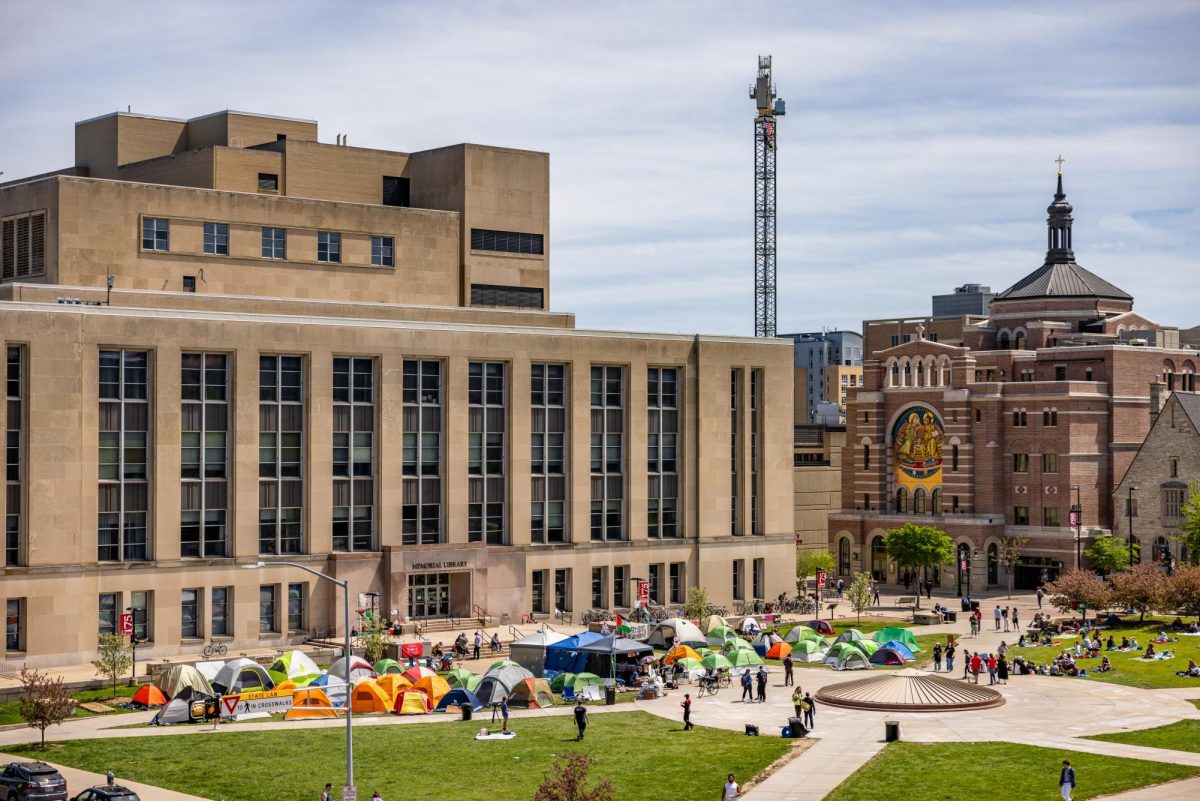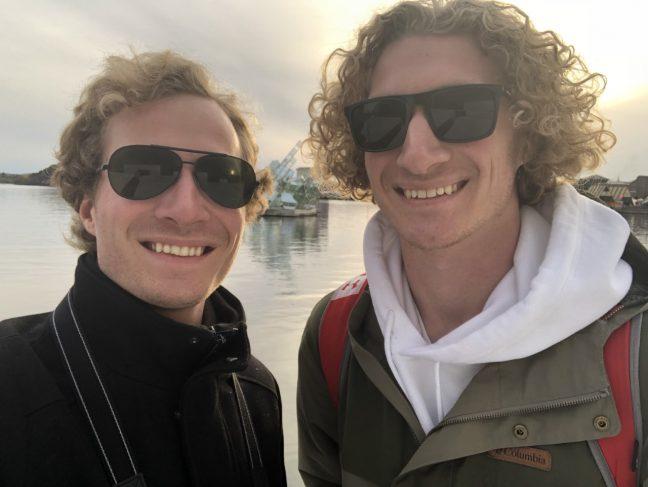http://www.youtube.com/watch?v=7kEt8Af3ZDo
A nationally acclaimed brain researcher recounted her experiences in recovering from a brain hemorrhage and how it changed her outlook on life as part of the University of Wisconsin’s Distinguished Lecture Series on Monday.
Jill Taylor suffered a brain hemorrhage Dec. 10, 1996, which hindered the left hemisphere of her brain. The doctors pulled a golf-ball sized blood clot out of the left side of her brain.
The injury left Taylor without any sense of her own body: Unable to walk, talk or breathe on her own.
However, the right side of her brain was fully functioning. Taylor said there is a fundamental difference in the right and left sides of human brains. The right focuses more on visual, nonverbal aspects of every day life. It also has a very different sense of time. This, Taylor said, gave her a unique chance to truly live in the moment.
“This was an incredibly opportunity to lose half my mind,” Taylor said. “I lost my left hemisphere and my identity. I was left with this awareness that I was alive.”
Over the course of eight years, Taylor regained her ability to walk and talk, as well as the function of the left side of her brain. It took four years before she could understand even the simplest mathematical equations, she said.
She added this is all because of her “beautiful neurons.” Taylor said the complexity of human neurosystems is something humans should be grateful for. The amount of neurons in each greatly outnumbers the amount of people on the planet.
“I have the choice to make my nervous system go wherever I want it to go. What am I doing with my power? What stimulation am I going to allow the privilege of stimulating my nervous system”? Taylor said.
Taylor said part of why she was so successful in her recovery is because she was treated as though she would recover from the trauma, and this should be true for all trauma patients.
The stroke has also given Taylor a reason to speak out on behalf of those suffering from mental illness. No stranger to mental disorders – her brother was diagnosed with schizophrenia – she said it is all about personal perceptions of reality.
“I was once told all human behavior is normal because we are human,” Taylor said. “The question is how does society perceive this behavior as normal or not? We are all very different in what we value and how we design our lives.”
Taylor urged her audience to take advantage of the “power” of their neurosystem and use their “brilliant” brains to make a difference in the world.
“I found her tremendously inspiring and hopeful,” Madison resident Tim Erdman said after the lecture.
Taylor also wrote “A Stroke of Insight: A Brain Scientist’s Personal Journey,” which recounts her experiences before, after and during her stroke.
“Taylor has a remarkable story,” UW neuroscience professor Tom Yen said, while introducing Taylor. “This look inside [the brain] is a very rare occasion.”


















